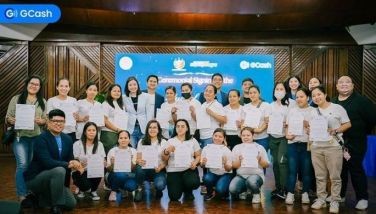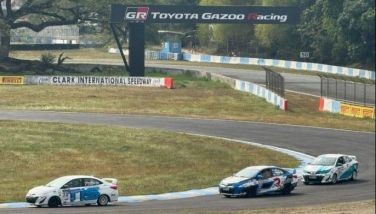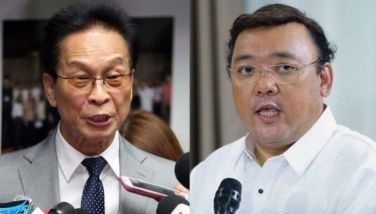DNR

Several years ago, I attended a meeting of doctors. They have sessions like this frequently. It is on-going formation for physicians. They come together to be updated on new developments in medicine, and to share their experience with each other.
I was really impressed by the way the meeting was run. There were more than a hundred doctors. The little auditorium on the ninth floor of the hospital was full. They started on time. There were five professional inputs. They did not waste a moment. They did not waste a word.
The subject was: DNR.
This is a note that the doctor writes into the medical record of the patient: Do Not Resuscitate. The doctor does this when the patient is terminal, when everything has been done for this patient that could be done, when prolonging life would only mean prolonging the agony and pain of the patient, and prolonging the anxiety and suffering of the family.
A case was presented by a young doctora. She was terrified, because she was facing all the wise old doctors who had taught her. But the presentation was sharp and clear, business-like. An old patient, over 80, terminal. The doctor has done all that can be done. The patient will never get back to normal living. But it is physically possible to keep this patient alive, for some time. It is expensive. It requires a great amount of medical equipment. And it requires a tremendous amount of manpower. Should the doctor write into the chart: DNR?
The doctora presented this case in accurate medical language: the exact diagnosis of the patient; the precise treatment that had been given; a description of the vital signs of the patient — blood pressure, heart beat, respiration; and the final note that the patient was in pain, and there was no hope of recovery.
It was there because the doctors wanted to be sure of what the Catholic Church teaches on this. But they really did not need me. They knew exactly what was right and wrong, what was moral, and what was immoral.
In the briefest terms, you can never kill anybody. . . . You can not execute a patient, to get him out of his pain. . . But you are never obliged to use extraordinary means to preserve life. . . You are not obliged to keep this patient alive by the use of machines. It is alright to remove all the machines, and write into the chart: DNR.
I expected the doctors to say: “Keep the patient alive for as long as you can!” But they did not say that. The doctors who spoke wanted to use DNR. Their problem was that the families of the patients, very often, would not accept this. Some families threatened to sue the doctors, if the doctor gave up, believing that nothing more could be done.
Their real concern was this: we care expending so much time, so much energy; we are using so much equipment, so much medicine; to prolong the life of a person for days, weeks, months — and this extension of life is of no value to the patient, or to the family, or to anyone else!. . . . While we have hundreds of people who need medical attention, and who are capable of living long, productive lives after they recover!. . . Should we not be helping the poor to live, rather than staving off the inevitable moment of death for the rich?
Every person is interested in this subject, because death must come, some day, to all of us. The Jesuit Provincial in the Philippines that time, waited for two years before releasing a letter that was suggested by his staff. The letter was worded very gently, but the burden of it was: “If you are terminal, and there is no hope that you will ever return to normal living, but we can prolong your life artificially, by the use of machines — should we do it?”
The provincial blushed to send this letter, thinking that it might be offensive to the men, but every Jesuit that I know, who received the letter, wrote back: “Do not use the machines!. . . Please! . . When it is time for me to go, just let me go home to God!”
When I was a very young priest, serving as chaplain in Georgetown University Hospital, I was startled when an old woman whispered to me: “Father. . . please pray. . . that God will take me. . . soon!” She had cancer of the throat. She opened her eyes, each day, to pain. She wanted to go home.
It is true that sometimes a person seems to be dead, and then recovers . . . This is what gives everyone the urge to do all that is possible to preserve life.
My brother, Kenny, had a 17 year old son, whom we called: “Little Kenny”. He climbed out of the swimming pool one morning, put his hand to his head, and said: “Boy! Do I have a headache!” Then he collapsed. . . . They took him to the hospital. . . He was in the ICU, with all the machines on him. . . But his cheeks were rosy. He looked as if he would wake up any moment. This went on for 11 days. He never even flickered an eyelid.
Finally two of my sisters went to the doctor and asked: “Is there any hope that he will wake up?” The doctor said: “Oh! I thought you knew that! . . No. . . He is clinically dead. . . My sister asked: “Well. . . why are you keeping the machines on him?” The doctor said: “We can not remove the machines unless his father says so.”
What father is going to say: . . . “Remove the machines”, when the boy looks like he will wake up at any moment? Eventually they declared little Kenny dead. The shock to my brother was so strong that he did not talk to God for three years.
I was impressed by the deep human concern of the doctors. At no time did I sense that any one of them was in the medical profession in order to make money. They were thinking about the good of their patients.
A doctor serves God by being a good doctor, by serving the sick who come to him. When the doctor dies, and stands before God to be judged, Our Lord will say to him: “So long as you have done it to the least of these, my little ones, you have done it to Me!”
- Latest
- Trending




























